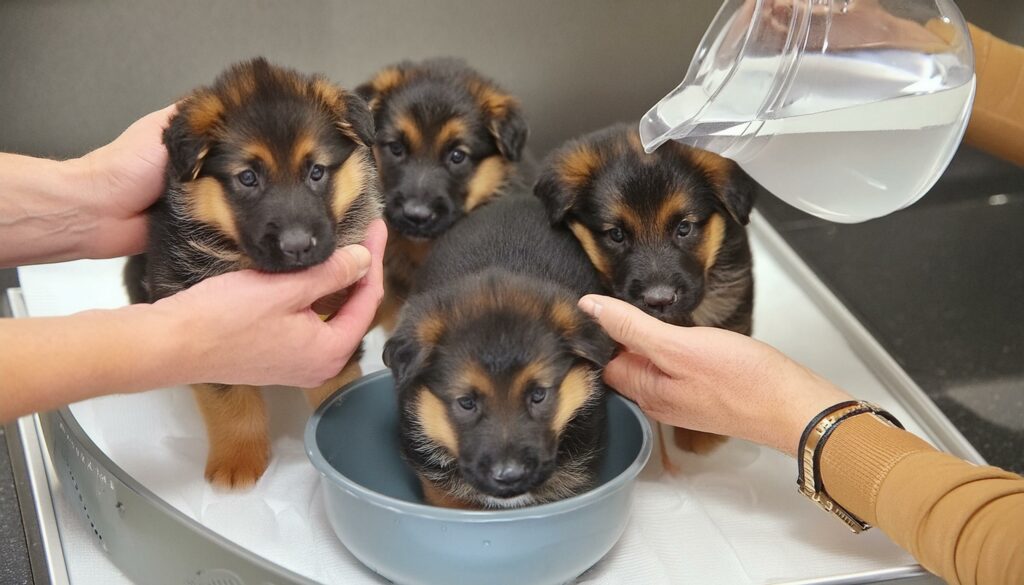German Shepherds are not just loyal companions but also intelligent and versatile dogs. Raising a German Shepherd puppy requires patience, consistency, and understanding of their specific needs. In this guide, we will explore the essential aspects of raising a healthy and well-behaved German Shepherd puppy.
Introduction
German Shepherds are known for their loyalty, intelligence, and protective instincts, making them one of the most popular dog breeds worldwide. However, raising a German Shepherd puppy comes with its own set of challenges and responsibilities.
Understanding German Shepherd Puppies
History and Origin
German Shepherds were originally bred in Germany in the late 19th century for herding and protecting sheep. Over time, they have evolved into versatile working dogs used in various roles, including police and military work, search and rescue, and as family pets.
Characteristics
German Shepherd puppies exhibit traits such as high energy levels, curiosity, and a strong desire to please their owners. They are known for their intelligence, which makes them highly trainable but also requires mental stimulation to prevent boredom and behavioral issues.
Preparing for Your German Shepherd Puppy

Creating a Safe Environment
Before bringing your German Shepherd puppy home, it’s essential to puppy-proof your living space to ensure their safety. Remove any potential hazards such as electrical cords, toxic plants, and small objects that could be swallowed.
Necessary Supplies
Ensure you have all the necessary supplies ready, including a comfortable bed, food and water bowls, high-quality puppy food, toys for mental stimulation, a collar and leash for walks, and grooming tools.
Training Your German Shepherd Puppy
Basic Commands
Start training your German Shepherd puppy as soon as you bring them home. Focus on teaching basic commands such as sit, stay, come, and down using positive reinforcement techniques like treats and praise.
Socialization
Expose your puppy to different people, animals, environments, and experiences to help them develop into well-adjusted adults. Socialization is crucial for preventing fear and aggression later in life.
Obedience Training
Consistent training is key to raising a well-behaved German Shepherd. Enroll in obedience classes or work with a professional trainer to teach your puppy advanced commands and manners.
Feeding and Nutrition
Choosing the Right Food
Feed your German Shepherd puppy a balanced diet formulated for their age, size, and activity level. Look for high-quality puppy food that contains essential nutrients for growth and development.
Feeding Schedule
Establish a regular feeding schedule with set mealtimes to regulate your puppy’s appetite and prevent overeating. Monitor their weight and adjust their food portions accordingly.
Health and Care
Regular Veterinary Check-ups
Schedule regular veterinary check-ups to ensure your puppy is healthy and up-to-date on vaccinations. Discuss preventive care measures such as parasite control and dental hygiene with your veterinarian.
Grooming
German Shepherds have a double coat that requires regular grooming to keep it clean and healthy. Brush your puppy’s coat weekly to remove loose fur and prevent matting, and trim their nails as needed.
Exercise and Activity
Importance of Exercise
Provide your German Shepherd puppy with plenty of opportunities for exercise and play to keep them physically and mentally stimulated. Aim for at least 30-60 minutes of moderate to vigorous activity each day.
Suitable Activities
Engage in activities such as walking, jogging, hiking, and playing fetch to burn off excess energy and strengthen the bond between you and your puppy.
Common Challenges and Solutions

Chewing and Mouthing
German Shepherd puppies have a natural urge to chew, which can be destructive if not properly managed. Provide them with appropriate chew toys and redirect their attention away from forbidden items.
Separation Anxiety
German Shepherds are prone to separation anxiety when left alone for extended periods. Gradually acclimate your puppy to alone time and provide them with comfort items such as toys and blankets.
Conclusion
Raising a German Shepherd puppy can be a rewarding experience with the right knowledge and preparation. By understanding their unique needs and providing proper care, training, and socialization, you can raise a happy, healthy, and well-behaved companion for life.
FAQs
At what age should I start training my German Shepherd puppy?
You can start basic training as early as 8 weeks old, focusing on positive reinforcement techniques.
How often should I bathe my German Shepherd puppy?
You can start basic training as early as 8 weeks old, focusing on positive reinforcement techniques.
Are German Shepherds good with children and other pets?
With proper socialization and training, German Shepherds can be excellent family pets and get along well with children and other animals.
How much exercise does a German Shepherd puppy need?
German Shepherd puppies require at least 30-60 minutes of exercise each day to stay healthy and happy.
What should I do if my German Shepherd puppy exhibits behavioral problems?
Consult with a professional dog trainer or behaviorist to address any behavioral issues promptly and effectively.
